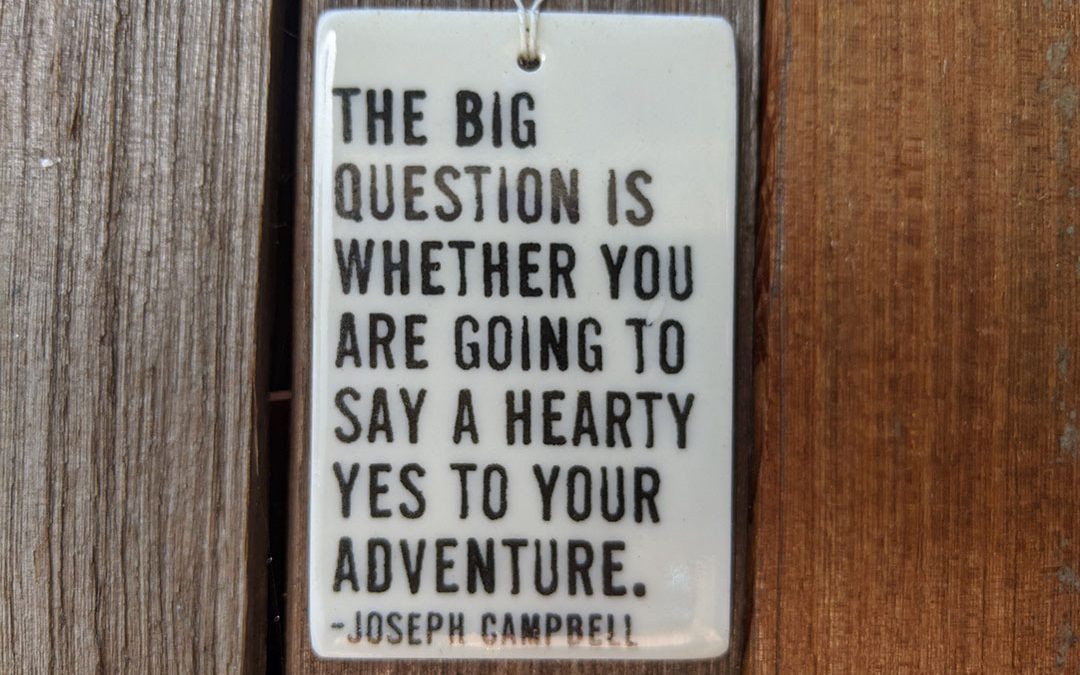It is my hope that in explaining Plato’s allegory of the cave in this blog that we can keep in mind we have the power to change our reality if we can break free of the chains that bind us.
Plato begins by describing a dimly lit cave in which a group of prisoners are chained to a wall, completely immobilized. Here, the cave represents the sensory human mind. When we believe that knowledge is what we see, taste, touch, smell and feel, we are trapped in a cave of misunderstanding. We are the prisoners.
The prisoners know no other reality other than the wall in front of them which has projections of shadow images. Its appearance resembles puppetry as the shadows are created by people walking on a walkway carrying things on their head. These images are actually cast by the light of a fire behind them. The shadows are our perceptions that have been created from our (limited) experiences. These shadows are in some way representative of what we believe to be truth. What we see, we believe is real and true, however, what we are seeing is merely a shadow of truth. The prisoners do not see the actual images because they are bound by their head and limbs, completely immobilized. Their minds are creating the scene, watching the shadows, the nervous system reacting to the images cast creating a feeling that this in fact is real.
The prisoners would also play a game. They would see who could guess the next image to pass in front of the wall and whoever guessed correctly, was called a master of nature. When we believe that one person is a master because they have the “knowledge”, we give away our power to their beliefs. We actually fall under another person’s ideas of what reality is. This “master” does not know the truth any more than the other prisoners. Yet he is admired and given a status.
The shadow images are the thoughts we think, feelings that we feel and our action and reaction. The puppetry cast upon a screen represents the human drama, cause and effect, action and reaction based on things we believe to be true without question. Our sensory processes cause us to see, perceive, the same thing over and over again and we believe this to be the truth or reality.
But, one of the prisoners breaks free from the chains and leaves the darkness of the cave. The prisoner emerges into the light of a world that is bright and alive and realizes that the real Truth lies beyond his chains and the cave. The escapee is one who seeks knowledge outside of the beliefs of the tribe. He realizes that his senses (reactions) mislead him. The light represents the freed mind that perceives a different kind of knowing. Wisdom is found. In wisdom we recognize that an uncluttered mind, one freed from sensory perception as reality, comes in contact with the essence of all; The limitless.
When the escapee returns to share the good news with the other prisoners they reject him and threaten to kill him. He tells them that he has found the absolute truth. They do not want to hear it or believe it. They want to stay chained. They need to stay chained. The truth is relative when we operate from taste, touch, smell hear and feel. We are nothing more than electrical impulses running up and down the spine to the brain. To have real knowledge, we must break free of the senses, our reactions and simply observe self. Know thyself. Ask the question, what am I? And observe.
The prisoner realizes his entire existence was controlled by others, by shadows images cast upon a wall as he was bound and stared at a screen. We are very often bound by the actions and reactions of others. How often do we question why we believe what we do? Why we react as we do? Why we feel what we feel? Why do we love who we love? Why are we lonely? Why are we fearful? Why does TV set societal rules and then contradict them?
Knowledge gained through our sensory impulses is nothing more than opinion. Opinions based on our own personal experiences but it in no way equals the absolute truth.
The prisoner awakens. We can observe, question and then change our experiences and reality.
When we believe that we cannot change what we are experiencing, our reactions, feelings and thoughts we are also reinforcing the same behaviors that are creating our reality. What we believe we see is called perception. This is where the platitude, “perception is reality” was birthed. The people in the Plato’s cave allegory could only perceive what was in front of them. Their perception and beliefs are no different than what we believe reality is. We too are bound by metaphorical chains; our beliefs, thoughts, emotional actions and reactions and a plethora of other energies that could fill an encyclopedia.
We are only bound by our beliefs, our inability to see things differently; our need to be right and believe that what we were taught is the only way. Our beliefs separate us from the divine light within. The Divine light can and will change anything and everything if we are only willing to take off the blinders and unchain ourselves to what we see. It exists right inside of you. The prisoner in Plato’s allegory finds his eyes hurt from the light, he learns new things, and slowly as he observes he finds that the true light is within. What we see outside ourselves in only a shadow of what has been birthed from within.
A psychic reading is simply a reading of the energy around you. The reading is of the energetic reality that you are creating. Your energy is comprised of thoughts, feelings, memories and emotions from past experiences, some stuffed so far down that they are not even memorable. Nevertheless, they create a chain reaction that is the “go to” reaction. These reactions we believe to be real and true based on how we feel. But they are nothing more than chemical reactions and thoughts. We fight for these false beliefs, defend them and demand to be right. My old teacher once said to me, “fight for your limitations and they are yours.”
My teacher was a psychic and a damn good one. She taught me that a psychic is a guide. A psychic will help illuminate the reality that you would like to see manifest. It is not in another person, it is within you. She told me that people call psychics because they believe that they can see things others cannot, or to confirm what they already sense, or to hold up a mirror or to instill hope, faith and offer guidance. But a psychic doesn’t know the truth about a person’s life because the truth is relative. The psychic sees possibilities and points to the most probable outcome based on the energy of the person being read. Readings are alchemical. For example: One incident stands alone but lump it into many and it changes the dynamic. Alchemy happens when other elements are introduced. This applies to language, feelings, thoughts, emotions and perception. These things make up this reality that we call life.
My teacher taught me to help empower the person being read. Always remember, the power is within you. You will find it in the silence within. It waits for you to listen intently in the quiet gaps. “It is the splinter in your mind,” as Morpheus told Neo. Seek it and you will find it.




